Campus
- Downtown Toronto (St. George)
Fields of Study
- Mediterranean
- Early Modern
Areas of Interest
- Art and Material Culture of the Early Modern Italy and the Mediterranean
- Materiality, Craft Knowledge and the Environment
- Cross-cultural relations between Christendom and Islamic Lands
- Ornament, Kinaesthesia, and Space
- Global Art Historiography
Working Dissertation
Title
Supervisors
Description
Drawing eclectically on material culture studies, history of science and technology and the environmental humanities, this thesis narrates a cultural history of hardstone inlaid tables in sixteenth- and seventeenth-century Italy. It examines this novel genre of elite artefact as an interface—that is, as a negotiated form of material communication—between craft techniques of diverse artistic media, between disparate and often unequally positioned epistemic actors, between aesthetic experience of material surfaces ranging from painting, textile, gem facets to the architectonic, and between far-flung geographies and dissimilar social strata of artisanal labour. By haptic, I foreground the experiential, epistemological, and political aspects of making as distinct from and entangled with elite forms of knowledge-making from statecraft, environmental management to natural philosophy. By designating these objects as an “interface”, I highlight their particular spatial agency as kinaesthetic suture between multiple subjectivities and corporealities that shaped a stratified courtly hierarchy at home and bolstered the imperial and colonial ambitions of their European collectors overseas.
Each chapter singles out one technical and material trait of the craft technique—from emery-aided abrasion as material labour in the Mediterranean to drawing, design transfer and the combinatory aesthetics of architectural ornament, from lithic translucency and refraction as precious visuality to the haptic assemblage of mineral, vegetal and animal motifs. My thesis uncovers, for the first time, a Mediterranean infrastructure of enslaved labour, material commerce, and diplomacy that sustained the local craft production in Italy's littoral spheres and indexed the medium's deep-rooted entanglements with the Islamic world. I further conceptualize the craft medium as a "technical assemblage" whereby ingenious methods devised to manipulate natural matters from disparate craft practices were appropriated, combined and recalibrated into new systems of regimented material procedures. Unfolding a haptic history of the inlaid image on the tabular surfaces of elite domestic spaces, my research simultaneously challenges hegemonic hierarchies of the arts and conceptions of visual representation and recovers a forgotten space of embodied pictorial orientation in early modern Europe's age of mercantile, imperial and colonial expansion.
Biography
Wenyi Qian is PhD candidate in early modern Italian art and material culture at University of Toronto, with a particular focus on materiality, artisanal labour and their transcultural and ecological entanglements within and beyond the Mediterranean. She has secondary interests in the politics of translation in art historiography within a global context. She held curatorial fellowship at the Museum of Fine Arts, Houston, and worked as a convenor of academic programs at OCAT Institute, Beijing. Her research has been supported by Connaught International Scholarship, British School at Rome, Bibliotheca Hertziana, and Kunsthistorisches Institut in Florenz among others. Her published translations include Wu Hung's Space in Art History (2018, Chinese to
English) and Victor Stoichita's L'Instauration du tableau: métapeinture à l'aube des temps modernes (2024, French to Chinese). She received her BA in History of Art with Material Studies (2014) and MA in History of Art (2015) from University College London.
Selected Publications
- "Translation as Repoliticization: Thinking with Gombrich (and Popper) in Post-Mao China," History of Humanities, Fall 2024 (forthcoming)
Education
Presentations
Cohort
- 2019-2020


